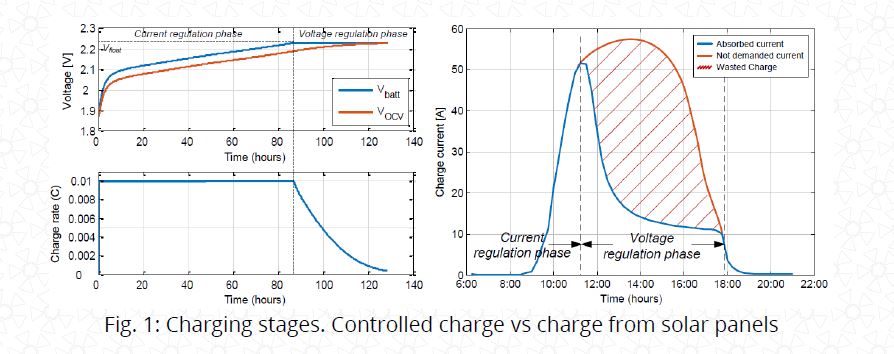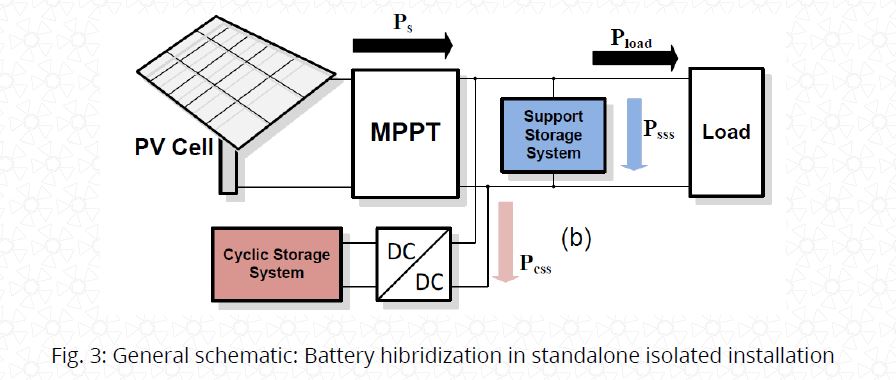Renewable energy is becoming a trend in the energy generation mix. Especially, when energy needs to be produced localized, photovoltaic installations are the most popular. Solar panels have also experienced a high reduction in cost and favourable regulation from the governments to ease and approve faster new installations.
In off-grid installations, where solar panels become the sole energy source, an energy buffer,such as batteries, must be included to feed the loads in every situation. Due to the high intermittency of solar generation, the load, location, power and capacity installed must be properly sized to avoid any power failure.
Due to the low-cost and long run of lead-acid batteries in the industry , these chemistries have been widely used in the market so far. New lithium based battery chemistries have evolved in the last decade to compete in several markets with the lead-acid traditional batteries achieving improvements in energy density, cyclability and cost. These improvements have propelled the implementation of Lithium batteries in many markets related with mobility and small devices.
Due to the higher costs of lithium batteries, this application note covers the benefits of hybridizing lead-acid and lithium batteries in stationary solar powered installations.

Read the full Application Note: “Application Note: Battery hibridization in off-grid solar powered installations”.
If you want more information, visit our website, or contact us.

